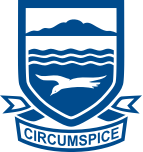The Social Sciences provide students with a wide range of opportunities to broaden their experiences, develop critical skills, and become engaged, socially aware members of society.
In Years 9 and 10, all students study Junior Social Science, an integrated course that introduces elements from our senior subjects: Geography, History, Art History, Classics, Sociology, and Tourism. From Year 11, students can specialise in one or more of these disciplines based on their interests and aspirations.
The Social Science Department is highly successful across all academic pathways—from Scholarship to Unit Standards. We pride ourselves on delivering a holistic education that supports every learner in reaching their full potential and academic goals.
We also offer a wide range of education outside the classroom, recognising the value of fieldwork in bringing our subjects to life and deepening student understanding.
Our alumni go on to succeed in a variety of fields, supported by our strong track record in helping students achieve University Entrance. We believe the Social Sciences offer exceptional building blocks for a bright and informed future.
Subjects Offered:
- Junior Social Science
- History
- Geography
- Sociology
- Art History
- Classics
- Tourism



